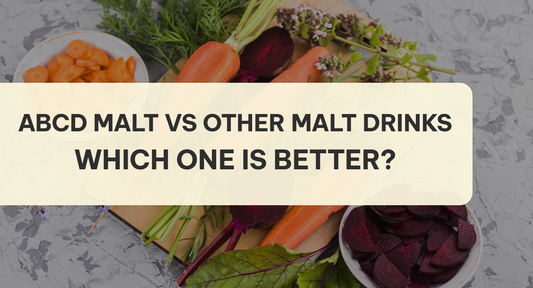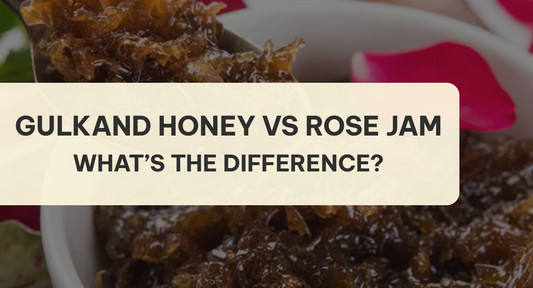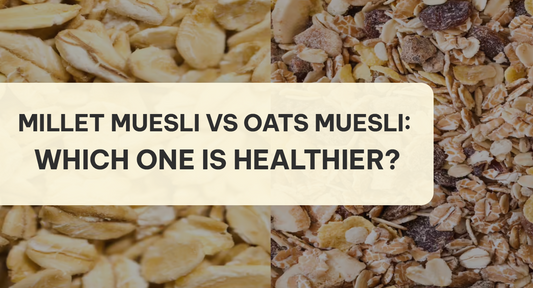
8 Amazing Health Benefits of Natural Honey
Introduction: The Golden Goodness of Natural Honey
In the lush landscapes of South India, where coconut trees sway and spice gardens thrive, one golden ingredient has always held a special place in traditional health remedies natural honey. Revered in Ayurveda, used in Siddha medicine, and loved in every household, honey is far more than just a sweet treat. The benefits of honey go beyond taste it’s a healing nectar brimming with natural energy, nutrients, and protective antioxidants.
For centuries, local farmers in Kerala, Tamil Nadu, Karnataka, and Andhra Pradesh have sourced raw honey from forest hives. It’s used in everything from temple rituals to grandma’s home remedies. Today, modern science backs what tradition already knew the health benefits of honey are vast and vital for maintaining overall well-being.
Understanding the Benefits of Honey
So, what makes the benefits of honey so special? This natural sweetener is a mix of glucose, fructose, minerals, enzymes, and vitamins that nourish the body. Unlike refined sugar, which is empty of nutrients, natural honey provides lasting energy and supports digestion, skin health, and immunity.
Beekeepers in South India often emphasize the difference between raw honey and processed varieties. Raw forms contain enzymes and antioxidants that get destroyed when overheated or filtered too much. These compounds play a crucial role in protecting cells, balancing metabolism, and supporting heart health.
The Rich Tradition of Natural Honey in South India
From the sacred hills of western ghats to the forests of Wayanad, natural honey collection is an age-old craft in South India. In traditional medicine, honey is described as a “Yogavahi” a substance that enhances the healing properties of herbs. It’s often mixed with turmeric, lemon, or tulsi to create immunity-boosting tonics.
Tribal communities in Tamil Nadu and Kerala have been collecting raw honey from forest hives for generations. This pure form of honey is unfiltered, unheated, and packed with enzymes that promote digestion and healing. Its regional flavor slightly floral, sometimes slightly spicy depends on the local flora.
These deep-rooted traditions highlight how the health benefits of honey have always been a part of South India’s cultural and medicinal heritage.
Raw Honey vs Processed Honey: What’s Better for You?
When it comes to choosing between raw honey and commercial ones, purity makes all the difference. Processed honey often undergoes filtration and pasteurization, stripping away pollen and beneficial enzymes. On the other hand, natural honey from trusted local sources retains its full nutritional value.
Raw varieties are richer in antioxidants and have stronger antibacterial properties. They also contain pollen that supports allergy relief and immunity. If you’re serious about maximizing the benefits of honey, always opt for raw, locally sourced varieties especially those produced in South Indian forests where biodiversity enhances its quality.
Powerful Antioxidant in Honey: Nature’s Protective Shield
One of the most powerful antioxidant in honey compounds is flavonoids. These natural substances help protect your body from oxidative stress the damage caused by free radicals. Regular consumption of natural honey can improve heart function, reduce inflammation, and slow signs of aging.
South Indian wild honey varieties, especially those from forest regions, contain higher levels of these antioxidants due to the diverse flowers bees pollinate. Including a spoonful of raw honey in your morning routine can strengthen immunity, promote glowing skin, and enhance overall vitality.
Honey and Blood Sugar: Can Diabetics Enjoy It Safely?
The topic of honey and blood sugar often sparks debate. While honey does contain natural sugars, it has a lower glycemic index than white sugar, meaning it raises blood glucose more slowly. For people with diabetes, consuming natural honey in moderation can be a healthier alternative.
In South India, many nutritionists recommend replacing refined sugar with raw honey in herbal teas and traditional drinks like jeera water or lemon honey tonic. However, it’s important to monitor blood sugar levels regularly. The benefits of honey are best enjoyed when used wisely as part of a balanced diet.
Honey in Diet: A Healthier Sweetener Option
Integrating honey in diet is simple and delicious. Whether drizzled over dosa, mixed in warm milk, or blended in smoothies, natural honey adds both sweetness and nutrition. Unlike refined sugar, which spikes energy levels, honey offers a steady release of energy.
Dietitians across South India recommend using raw honey in place of sugar to manage weight and promote gut health. With its prebiotic elements, it supports digestion and maintains a healthy gut flora. The benefits of honey go far beyond taste they influence metabolism, immunity, and vitality.

Honey for Wounds: Nature’s Ancient Healer
Long before modern antiseptics, people used honey for wounds due to its antimicrobial properties. The enzymes in natural honey produce hydrogen peroxide, which acts as a mild disinfectant. It also creates a moist healing environment, speeding up recovery and preventing infections.
In rural South India, raw honey is often applied to minor burns and cuts. Doctors today even use medical-grade honey dressings in hospitals for chronic wounds. This ancient practice, supported by science, proves how versatile and powerful the health benefits of honey truly are.
Cough Suppressant Honey: A Sweet Remedy That Works
Every South Indian home has its own version of a honey-based cough remedy. From turmeric-honey paste to ginger-honey tea, the cough suppressant honey effect is well-documented. Its thick texture coats the throat, easing irritation, while its antimicrobial compounds help fight infection.
Research shows that natural honey can be as effective as over-the-counter cough syrups, especially for children over one year old. So next time you’re battling a sore throat, skip the artificial lozenges and trust raw honey a sweet and soothing solution that generations have relied on.
Honey vs Sugar: Which is Better for Overall Health?
When comparing honey vs sugar, the differences are striking. Sugar is pure sucrose a processed carbohydrate with zero nutrients. Meanwhile, natural honey contains trace minerals, enzymes, and antioxidants that support cellular health.
Using raw honey in tea, coffee, or sweets can help reduce overall calorie intake and lower the risk of metabolic disorders. In South Indian households, replacing sugar with natural honey in recipes like herbal drinks or desserts offers a perfect balance of flavor and wellness.

Honey for Children: Sweet Nutrition with Care
Parents often ask about the honey for children benefits. Honey can boost energy, aid digestion, and strengthen immunity but it’s safe only for kids above one year old. Babies under 12 months shouldn’t consume it due to the risk of botulism.
Once children grow older, a spoonful of raw honey daily can enhance appetite and overall health. In South India, mixing natural honey with herbal tonics or milk is a popular way to support kids’ growth. Always ensure the honey is pure and sourced from trusted beekeepers.
Antioxidant and Antimicrobial Effects in Raw Honey
The antioxidant in honey works alongside its antibacterial properties to protect the body from infections. Raw forms of natural honey are rich in phenolic acids, enzymes, and organic acids that act as immune boosters.
Regular use of raw honey in your diet supports heart health, improves sleep, and strengthens resistance against seasonal illnesses. These compounds are especially abundant in South Indian wild honey varieties sourced from hill forests.
Local Varieties of Natural Honey in South India
South India boasts unique types of natural honey such as Western Ghats forest honey, tribal hill honey, and jamun flower honey. Each variety offers different flavors and medicinal benefits. Raw honey from Coorg is dark and rich, while Wayanad’s is lighter and floral.
Choosing local honey not only maximizes the health benefits of honey but also supports indigenous communities involved in beekeeping. Always prefer small-scale, ethical producers who maintain purity and sustainability.
Sustainable Beekeeping and Eco-Benefits of Honey Production
Bees are crucial pollinators that sustain biodiversity. Promoting natural honey production supports both health and the environment. In South India, sustainable beekeeping projects empower rural farmers while conserving forests.
By choosing raw honey from local sources, consumers contribute to ecological balance and community livelihoods. The benefits of honey extend beyond nutrition they symbolize harmony with nature.
How to Identify Pure Natural Honey at Home
With so many adulterated brands in the market, knowing how to check for pure natural honey is vital. Here are simple tests:
- Water Test: Pure raw honey settles at the bottom without dissolving.
- Thumb Test: A drop stays intact instead of spreading.
- Taste Test: Pure honey leaves a mild burning sensation in the throat due to enzymes.
Always buy from reputed South Indian beekeepers or organic stores like Roots Veyr. Genuine natural honey will crystallize over time a sign of purity, not impurity.
Embracing the Timeless Benefits of Honey
The benefits of honey go beyond its sweetness. From promoting healing and immunity to enriching diets and supporting ecology, natural honey is nature’s liquid gold. For South Indians, it’s more than food it’s tradition, medicine, and wellness combined.
Whether you choose it for skincare, wound care, or daily nutrition, always pick raw honey for maximum results. In every golden drop, you’ll find centuries of wisdom and the purity of nature itself.
[shortcode id="6900925cc2bbc3dee26b787b" name="8 Amazing Health Benefits of Natural Honey" layout="Accordion"]









